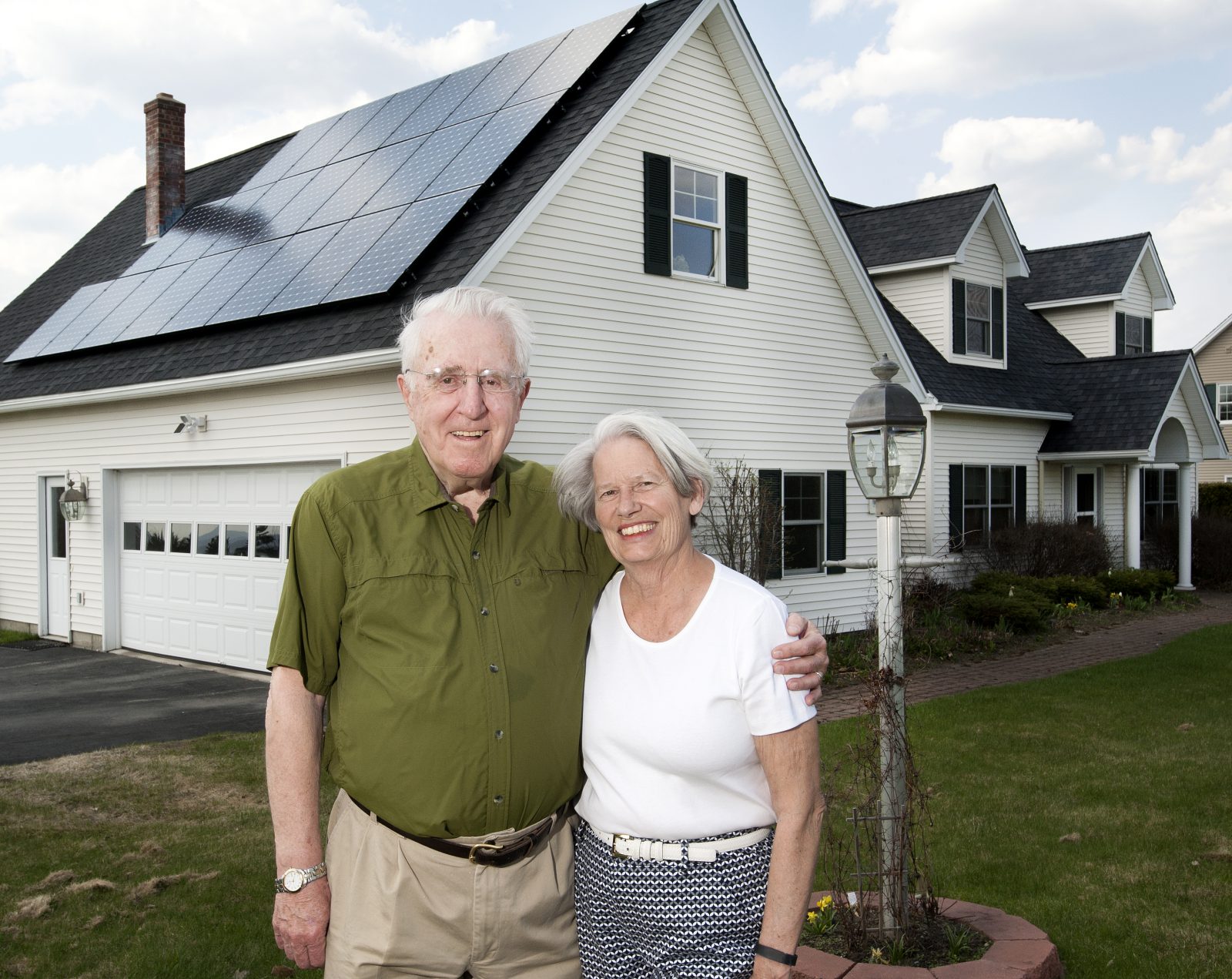Looking into solar, but how to pay for it?
Paying for a solar system now means no upfront cash and monthly payments that look a lot like your utility bill. Vermonters have two options in loans and leases – each with their own particular terms and rates.
Here’s some thoughts from Vermont’s largest provider of residential and community solar about leasing or buying solar in Vermont as you figure out what’s right for you:
Greater savings with financing
We all know that owning a home – rather than paying the landlord forever – is a better financial deal than renting. Same for solar. Like a mortgage burning party (only sooner), once you own your solar system outright, your electricity is free.
“People who lease their solar systems save far less than those who buy them outright or with a loan.” - Consumer Reports
And solar ownership comes with predictable, fixed terms while some leases sneak in an annual rent increase. Again from Consumer Reports: “Many leases contain an escalator clause that can further reduce savings by increasing payments 3 percent per year. … If the cost of energy doesn’t rise as quickly as the contracted lease payments increase, your savings could evaporate.”
According to Vermont’s utility regulators, electricity prices here increased annually by 3.7% over a 10 year period between 2000 and 2011. Solar lease payments that jump faster are a good deal for the solar landlord but not the solar renter.
Maintaining the system over time
Leased systems are not owned by the homeowner or business drawing the power, but typically by a third-party. It’s like the landlord is supposed to keep up the rental unit. Sounds good, but listen to Consumer Reports:
“Though leasing companies tout their service plans, maintenance is a red herring.”
Lease deals do cover any maintenance needed, to be sure. And a solar system will need some upkeep within the common, 20-year lease term. The question that Consumer Reports raises is a good one: Do the maintenance needs merit the increased expense of the lease?
Some products need regular service. A copy machine with a monthly lease and maintenance charge is a smart deal. But hey, there’s no paper to jam a solar array. No moving parts, at all.
The comparison on this point, therefore, is between leasing a product with limited maintenance needs, and owning the same with the protections offered by equipment warranties.
| Loan | Lease |
|---|---|
| No upfront cost. Fixed monthly payments. No prepay penalties. | No upfront cost. Commonly, the monthly payments escalate over the lease term. |
| Conclude payments at the completion of loan. | Conclude payments at end of lease term, and pay for the solar system at fair market value. |
| Greater Savings. | Less Savings. |
| Protected by warranties. Some long-term maintenance costs anticipated. | No maintenance costs during the term of the lease. |
| Receive solar income tax credit directly. | Lease-holder receives tax credit, not the home owner. |
| Sell a home with no electric bill. | Sell a home with a contracted monthly solar payment. |
| Own your solar system. | Rent your solar system. |
Who gets the solar incentives?
Our government wisely supports solar through a federal solar tax credit available to homeowners and businesses alike. Leased solar systems send all those incentives to the third party owner. But those who own their systems themselves through financing get those incentives directly.
And that value is significant. Homeowners and businesses can qualify to get 30% of the entire project cost back as a tax refund.
Solar is an asset for your home
Thinking about selling your home in the future? You can feel good about investing in solar since buyers place a ‘solar premium’ for a home with solar panels. A recent study by Lawrence Berkeley National Lab explored housing trends across 20,000 home sales in Massachusetts, Connecticut, New York, Pennsylvania, Maryland, North Carolina, California and Florida found that that buyers are willing to pay more for a home with solar panels.

Bottom Line
The simple difference between lease and loan is ownership. Renting equipment at your home doesn’t add value in the same way a permanent fixture does. And the next owner may not be happy if the escalating lease cost rose above utility rates.
“If you put your house on the market before the lease is up (usually 20 years), you will either have to buy out the lease or the person purchasing your home will have to assume it—which some are reluctant to do.” - Consumer Reports.
So read the fine print on any lease pitched to you, to explore which is a better option for you: leasing or buying solar in Vermont.
And give us at SunCommon a ring to see why over 2,000 Vermonters have chosen our local business to help them Go Solar and Save Money. There’s no obligation. Check us out. If it works out, great. If not, no sweat.
The post Leasing or buying solar in Vermont appeared first on SunCommon.




